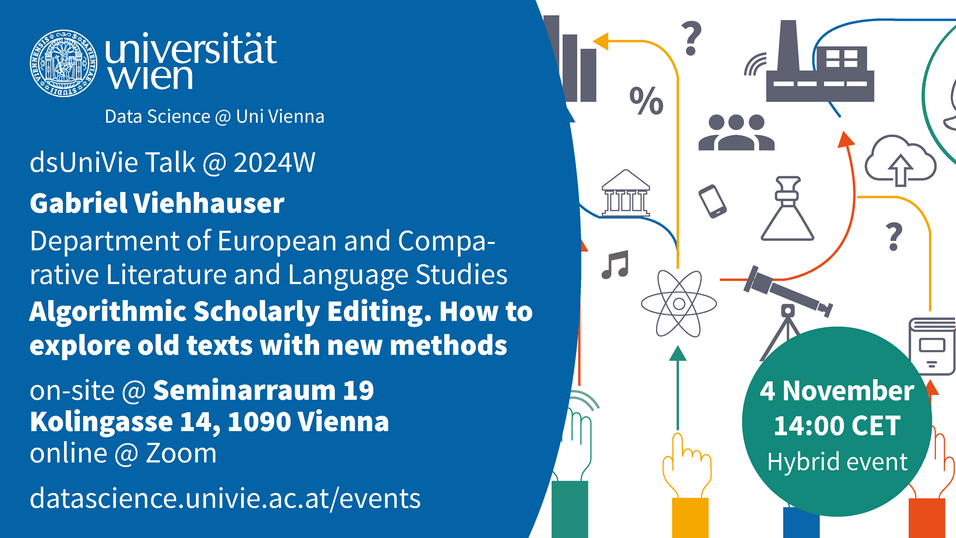Monday, 4 November 2024 @ 14:00–15:00 CET
On-site:
University of Vienna
Seminarraum 19 (OG02)
Kolingasse 14–16
1090 Vienna
Online:
https://univienna.zoom.us/j/67032386717?pwd=g8HOG2oRrWK6T5cvmRA7bv17QRzq72.1
Meeting ID: 670 3238 6717
Passcode: 440328
Algorithmic Scholarly Editing. How to explore old texts with new methods
Abstract :
Making textual sources accessible in scholarly editions is one of the traditional basic tasks of cultural studies. In this field in particular, the use of digital methods opens up new possibilities that in many respects appear more appropriate to the subject matter than the conventional approaches of the humanities, which are characterised by the print medium. With the help of digital methods, it is possible, for example, to present pre-modern texts in their dynamic history of transmission or to take into account the inconstancy of born-digital literature.
However, these new possibilities also bring with them fundamental paradigm shifts to which scholars who have grown up with the book medium must first become accustomed: What is a text? What is an author? What is a work? Are there boundaries, limits and originality in text production? These questions are posed anew under digital conditions.
Ultimately, they also lead to a blurring of the boundaries between archiving and analysing texts. Digital editions are algorithmic in nature and can or even should also be analysed using the latest digital possibilities (such as AI). Against this background, I would like to use examples from my own research to outline the possibilities, but also the challenges, that this fundamental change in media and mentality in editorial studies entails - or should entail.
Bio :
Gabriel Viehhauser studied German Literature Studies and Philosophy, Psychology and Pedagogy at the University of Vienna. After working as a research assistent on the project of a digital edition of the medieval German Parzival at the universities of Basel and Bern, he became professor for Digital Humanities at the University of Stuttgart. In April 2024 he moved to the University of Vienna, where he is Professor for Digital Scholarly Editing at the Department of European and Comparative Literature and Language Studies (EVSL).

